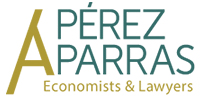Royal Decree-Law 11/2020 contains a series of measures in support of vulnerable groups. We are going to explain here the measures that, specifically, are intended to support people who cannot pay their rents because they are in a vulnerable situation due to COVID-19, and have no alternative accommodation. Among these measures, we will explain the moratorium or deferment of the lease debt.
What is the deferment in the payment of the housing lease debt?
The moratorium consists of the deferment of the rental charges paid, or rent payments, to the tenants in situation of economic vulnerability due to the Covid-19.
In this way, all payments that the tenant must make to the landlord are deferred. In other words, the full monthly rental payment is deferred, as well as the rest of the agreed amounts: electricity and water consumption, community expenses, insurance or any other.
Who can request the deferment of the rent payment?
It can be requested by tenants who have a lease contract and meet these 3 conditions simultaneously:
- Have a habitual housing rental contract, which is governed by Spanish Law 29/1994, of November 24, on Urban Leases. Therefore, it must be a “habitual residence” contract. Thus, leases for second residences or holiday homes are excluded.
- That the owner (lessor) is a public company or a “large property holder”. A large holder is the owner of more than 10 properties (excluding garages and storage rooms), or of a constructed area of more than 1,500 square meters.
NOTE: the tenant will not be able to request the deferment of the housing rent payment when:
-
- the lessor is a public housing company or entity, or a large real estate holder, but the lessee has already been granted a moratorium or a discharge of debt in conditions equal to or better than those that would result from applying the Royal Decree-law in question, or
-
- The lessor, being a natural or corporate person, is neither a company or a public housing entity, nor a large real estate holder
In these cases, not being the landlord mandatorily required to accept the moratorium, if the landlord rejects the request for deferment, the tenant may access the temporary financing aid without interest expenses guaranteed by the State (article 9 of Royal Decree Law 11/2020, of March 31).
- That the tenant is in a situation of economic vulnerability due to Covid-19.

Tenants in a situation of economic vulnerability can request the deferment of the rent payment if they meet a series of conditions, which are detailed next.
In which cases you can not request the deferment of your housing rent payment?
- If your rental contract:
- was entered into before January 1, 1995
- is a rural lease
- is an urban lease, for use other than housing:
- Business presimes (office, shop, warehouse, etc)
- Seasonal housing
- Garages and storage rooms
- is a lease of:
- housing of janitors, guards, officials, etc, that they have been assigned due to the position they hold
- university housing, since this type of leases are not considered housing ones
- holiday rental.
- Tenants who are owners or usufructuaries of another home in Spanish territory, or whether it is any other member of the family unit.
NOTE: What is meant by a family unit?
– The person who owes the rent payment, his or her legally separated spouse or registered partner and the children, regardless of their age, as well as people regardless of their age, linked by a guardianship, guardian or foster care residing in the home.
But, if I am the owner of another property in Spanish territory, can I still request the deferment of the rent payment in certain cases?
Yes, the tenants who are in the following cases, despite owning a second property, may request the deferment:
- They own only part of another property, and they obtained it by inheritance or by the death of another person without a will, or
- They are the owner of another home, but they may accredit that they cannot use it for reasons right out of their control (for example, due to separation or divorce).
- Because it is a disabled person, being the second home not adapted for the disabled.
How do I know if I am in a situation of “economic vulnerability”?
A tenant requesting a moratorium or deferral of their rental housing due to the Covid-19 health crisis must meet ALL of the following requirements at the same time:
- Having been fired, having suffered an ERTE with suspension of employment or shorter working hours, or being in a similar situation that implies a substantial reduction in income.
- That the income of the family unit does not exceed the limit of three times the monthly Public Indicator of Multiple Effects Income (hereinafter IPREM *), in the month prior to the request for the moratorium. The monthly updated value of the IPREM in 2020 is € 537.84. Consequently, in general, the income of the family unit must not exceed the amount of 613.46 euros in the month prior to the request for the mortgage moratorium.
- The said limit will increase by 0.1 times the IPREM per child in charge of the family unit. That is, 53.78 euros for each child.
If the family is single-parent, the increase for each child in charge of the family unit will be 0.15 times the IPREM. That is, 80.6 euros for each child.
-
- Said limit is increased by 0.1 times the IPREM for each person over 65 years of age who is a member of the family unit. That is, 53.78 euros for each one.
- In case any of the members of the family unit has:
-
-
- declared a disability greater than 33%, or
- a situation of dependency or illness that incapacitates you permanently for carrying out a work activity,
-
the limit will be four times the IPREM, that is, 2,151.36 euros, cumulative to the increases per dependent child. In this case there will be no increases per member of the family unit over the age of sixty-five.
-
- If the tenant is a person with cerebral palsy, mental illness or intellectual disability, with a recognized degree of disability equal to or greater than thirty-three percent (33%) or a person with physical or sensory disability, with a recognized degree of disability equal to or greater than 65 percent (65%), as well as in cases of serious illness that will incapacitate for carrying out a work activity, the limit established in subsection I) will be five times the IPREM, that is, 2,689.2 euros.
In this case, there is no increase, neither for dependent children nor for over sixty-five years, in the family unit. The same amount will be considered if it is the caretaker of the lessee affected by this disability, the one who suffers from a serious illness that renders him or her incapacitated for carrying out a work activity.
3. That the rental income, plus expenses and basic supplies of the applicant (electricity, gas, water, fixed and mobile telecommunication services -including internet-, and community fee of owners), is greater than 35% of the net income received by all the members of the family unit.
4. The applicant cannot be the owner or usufructuary of any other property in Spain, unless said property is unavailable due to divorce or separation, or due to adaptability to a disability.
What is the deferment of rent for housing rental? What options can the landlord choose?
The Royal Decree law establishes that, after the lessor tries to reach an agreement with the tenant, the lessor must choose within a week between:
- Reducing the rent in half, during the duration of the state of alarm decreed by the Government and the following monthly payments if necessary, for a maximum of four months of rent in any case, or
- Granting a deferment of rental income payments, which will be applied automatically, which will affect the period of time that the state of alarm decreed by the Government lasts and the following monthly payments, extendable one by one, if it is necessary due to the vulnerability situation of the tenant and, in no case may it will exceed four months.

The burden of paying rental income for economically vulnerable people, due to the Covid-19 health crisis, is mitigated by Royal Decree Law 11/2020, which allows such payment to be postponed for a certain time.
If as a tenant I meet all the above requirements, what period do I have to request the landlord the moratorium or deferment of rent payment?
The term established by Royal Decree Law 11/2020, of March 31, has been extended by Royal Decree Law 16/2020, of April 28, 2020, so that the tenant has a period of three months from entry into force of the aforementioned royal decree-law, to request the temporary and extraordinary postponement in the payment of rent.
Therefore, and regardless of the type of landlord (whether it is a large holder or public housing company or entity, or is not a large holder), the period available to the tenant to notify their landlord of the request for temporary deferment or partial reduction of the Income will end on July 2, 2020, having started on April 2, 2020.
How does the tenant demonstrate to his landlord that he meets the requirements to request a moratorium of the rental payment for the home?
- In the event of unemployment, the certificate issued by the entity managing the benefits must be provided, showing the monthly amount received as unemployment benefits or subsidies.
- In the event of cessation of activity of self-employed, by means of a certificate issued by the State Agency of the Tax Administration or competent body of the Autonomous Community (Tax Agency of Andalusia, for example), based on the declaration of cessation of activity declared by the interested party.
- Accreditation of the number and characteristics of the people living in the house:
- family book or document confirming a domestic partnership
- census certificate
- declaration of disability, dependency or incapacity, if applicable.
What happens if you do not have any of the above documents? You can present a supplementary affidavit. Be careful because you will have one month after the end of the state of alarm to provide the documents that you would have failed to provide at due time.
Can I come, as a tenant, to some other type of agreement different from what is established in this Royal Decree law?
Yes, there is no problem in reaching some other type of agreement with your landlord.
If you want to know if you meet the requirements to request the extraordinary postponement of the payment of your housing rental to your landlord, and how to ask your landlord for such deferment, do not hesitate to contact the Pérez Parras Economists & Lawyers Firm to help you in the processing and necessary documentation to provide.
You can also consult the measures established by the Government for the deferment of the business rental lease debt for SMEs and the self-employed.


LEAVE A REPLY